If you know the High Country of North Carolina, you may recognize this river…The New River. It is a poorly named river, as most geologist believe it is the second oldest river in the world (second only to the Finke River in Australia). I’m not exactly sure how scientists date rivers and make these determinations, but I do know that when I touch these waters, I feel awash with something ancient and wise.
And if you know my particularly corner of the High Country, you’ll recognize this place as Todd Island, a little spit of land in the river that is home to hundreds of native plant species and wildlife.
And finally, if you know me at all, you know this is one of my favorite places in the entire world - and I’ve done quite a bit of traveling. This is the place I go to rest. After a hard day, I make the short drive on Railroad Grade Road, park my car, cross the bridge from the mainland to the island, and walk along the meandering trails through the Hickory trees, Ironweed, and Goldenrod. It is here that I learned to forage, learned the healing powers of Yellow Dock, Clover, Boneset, and Spiderwort. It is here I bring my children after school, to splash in the water, to search for treasures like shiny rocks and river snails. “This place is healing,” I’ve heard it said. And I know it to be true.
But you won’t recognize the island now, its bridge washed downstream, and its trees snapped in two. You might not even recognize the river itself. For the flood, as my geographer/mapmaker husband told me recently, was so catastrophic that it has rerouted many of our rivers. Our maps must be updated, our muscle memory of this place relearned, retrained.
Across Southern Appalachia, folks are adjusting to the new normal, but it’s not easy. My home was spared, and my personal losses are so minimal compared to so many. But there is still a profound sadness that comes in seeing the land wounded. There’s a heartache in losing the beauty of a place. And a sense of safety. Our social media algorithms, too, have reset; our feeds are filled with images of places we loved lost to deluge, videos of rising waters, of homes floating down the French Broad, the Toe River, the Watauga, the Nolichucky.
These were our rivers, our mountains. Our places of healing and safety. And they turned on us.
I’m not sure which is worse: man-made disasters or natural disasters. One will lead you to lose your faith in humanity. The other might lead you to lose your faith in God. Both come with unspeakable grief.
I am writing this post the week before the election. It is scheduled to go live on November 6th, the morning after the election. As I type, I have no idea what the outcome will be, am not sure what new developments, discords, or dissent we’ll be facing. The coffee shop where I’m working on my laptop is bustling, and the tables are humming with conversation about two things: the flood and the election. The mood is…somber.
I won’t offer my political commentary here. I’m not sure I have anything to add that’s not already been said. But I will say that I’ve been thinking a lot about battered landscapes and ruptured terrain. And I know in my bones that we are a wounded nation, a fractured citizenry.
I’m old enough to remember when politics distinguished us from one another, but didn’t divide us. At least not so viciously. I remember debates that were civil and discourse that was thoughtful.
I no longer recognize our political system, our election cycles. We don’t trust each other enough to agree on basic facts. The rhetoric is dehumanizing and threats of violence loom. That same algorithmic industrial complex that is feeding my neighbors a steady stream of devastation is feeding the entire country vitriolic messages and narratives aimed at animosity. A value as foundational as democracy suddenly feels fragile, and our most trusted institutions no longer seem sure to hold.
Worse, we can’t even have political discussions with family and friends without the conversation plummeting into suspicion, hurt feelings, and trust broken. When the names of presidential candidates are uttered, folks go from being neighbors to adversaries, kin to combatants, friends to foes. Ancestral and communal ties are unraveling before our eyes.
This was our country, our government. These were our neighbors. And now I’m left remapping my expectations of all I thought this place could be for me and my children. I am relearning this country, my home.
My mapmaker husband - ever attentive to details and particularities of a place - was listening to me cry about the loss of Todd Island: the fallen trees, the washed-out banks, the mud-buried flowers and foliage.
“It’s sad,” he said, and paused. “But nature can heal. The plants will grow back, you know…the roots aren’t gone, just buried under mud.”
Buried. Displaced. Washed downstream. Life can feel like that sometimes.
Nature is indeed self-healing. And I believe this is true because nature was created and is sustained by a healing God. A loving God. The earth’s Maker is the one whose first creative act was to speak order to chaos. And that same Maker was certain to create “plants bearing seed according to their kinds and trees bearing fruit with seed in it according to their kinds. And God saw that it was good” (Genesis 1:12). Creation is a continuous act, and nature is reborn again and again and again.
The last month living in these storm-battered mountains has been an exercise in trust: trust that beauty will return to this place, that the new paths forged by rushing waters will give way to new homes and habitats, that the Yellow Dock, and Poke Weed, and Golden Rod still know how to grow, will remember their roots and return in due season.
At the risk of sounding overly optimistic, I’m trying to exercise this same trust in this nation, in the ties that bind us together. In my bones I believe that if we allow divine love to grow in our hearts, to wrap its healing tendrils around our fears and prejudices, we might yet heal. We might yet be moved to repentance. We can move forward from this division. But we must root ourselves in that same love that first spoke order to chaos, that blew breath into dirt and made us into a human community.
No matter the outcome of this election, there will be people who are hurt, angry, and disenfranchised. Some will fear for their lives, fear for their children’s futures. Some of their fears will absolutely be valid. It is ok to be upset. I know this election has consequences, and there are people in this country that are far more vulnerable than I am. The work of justice is never done.
But I’m still holding to this radical belief that healing is possible, even if it doesn’t seem probable. The same God who made those plants and trees made us. We too were made with the capacity to heal, to re-root, to bear fruit again.
There is reason for hope. In the aftermath of Helene, I saw neighbors bending over backwards to help their neighbors, even if the political signs in each other’s yards didn’t match up. No one asked who you were voting for before they showed up with a chainsaw or shovel or truckful of gravel. I watched people delight in helping one another, in loving one another. It felt like a miracle to bear witness to this.
As much as you can, make every effort to maintain your faith in humanity - though that faith may be as small as a mustard seed right now. More importantly, don’t lose your faith in God. God is still creator God, renewing, remaking, uprooting and re-rooting. Don’t grow weary in the long work of doing good. The map might look different, but this is still our country, these are still our neighbors. This is still our home. And if we are able to re-root - to send forth seeds of hope - the land will heal (Lord, may it be so).
And now for some provisions…
After living through a climate disaster, I’ve been thinking a lot lately about what it means to care for the land, to respect God’s creation. In 2022, The Porter’s Gate recorded an album called Climate Vigil Songs, which serve as an admonition to all believers to care for the climate as God intends us to do. I find the song All Creatures Lament particularly moving. These days, I understand a bit better what the Apostle Paul means when he says all creation is groaning.
All creatures dwelling on the land
Join as we lift each heart and hand
Fill the world with lamentation
Mourn the destruction of our home
Weep with the fear of worse to come
Hear the groans of all creation
Lord, have mercy, Christ, have mercy
Lord, have mercy
I missed peek apple season because of hurricane Helene, and many of our orchards were damaged and closed for the season. But I was still able to get my hands on some locally made apple butter and decided to make an apple stack cake for my friend’s birthday.
I have long endeavored to make the perfect apple stack cake., and my quest to find the perfect recipe has been long and arduous. This recipe from Lisa Donovan at Bon-appetite adds just a bit more moisture than most traditional recipes (which I like...I even added an 1/4 cup of buttermilk). I also liked that she uses apple butter for the filling, which saves loads of time and (again) adds moisture to the final product (plus I was able to use my recently acquired locally boiled sorghum!) It wasn’t perfect, but overall it was my best attempt thus far. Be sure to make the cream topping…the buttermilk adds just the right amount of sourness!
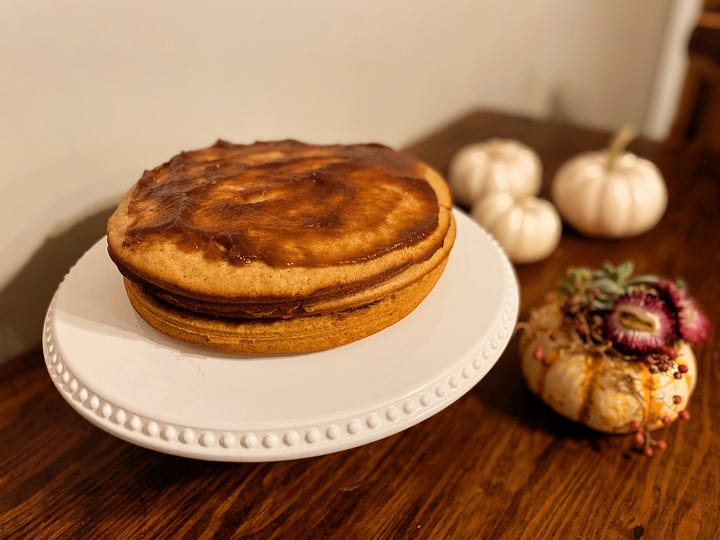
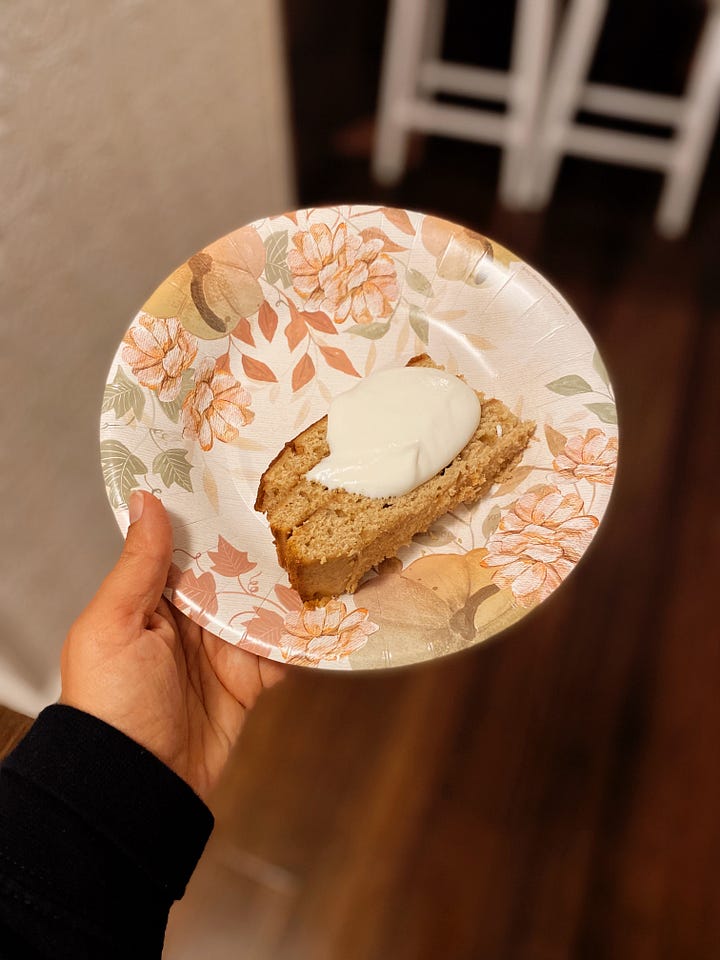

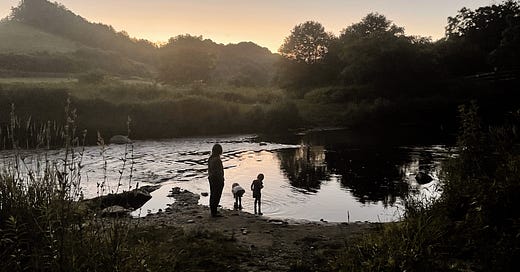



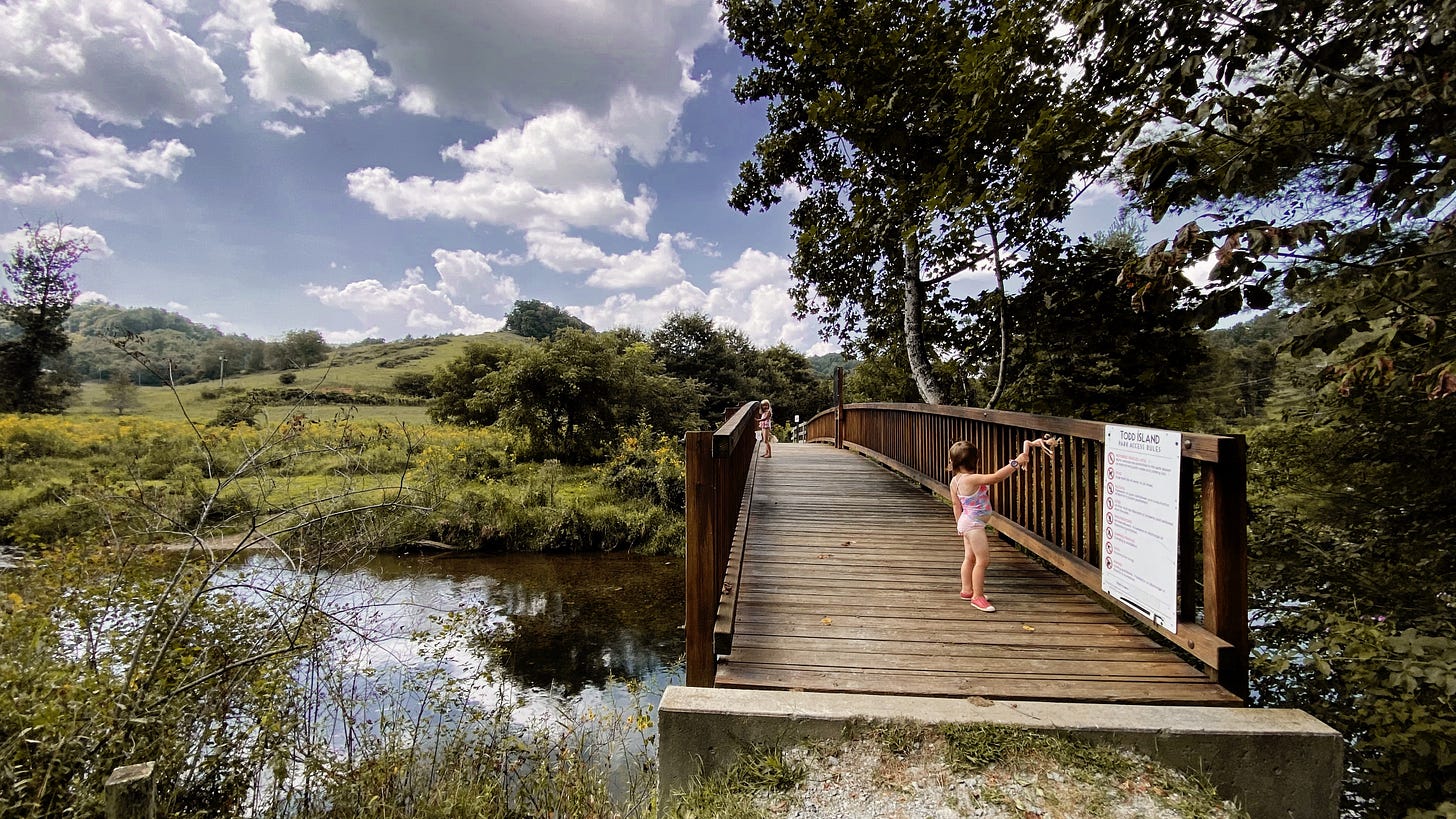
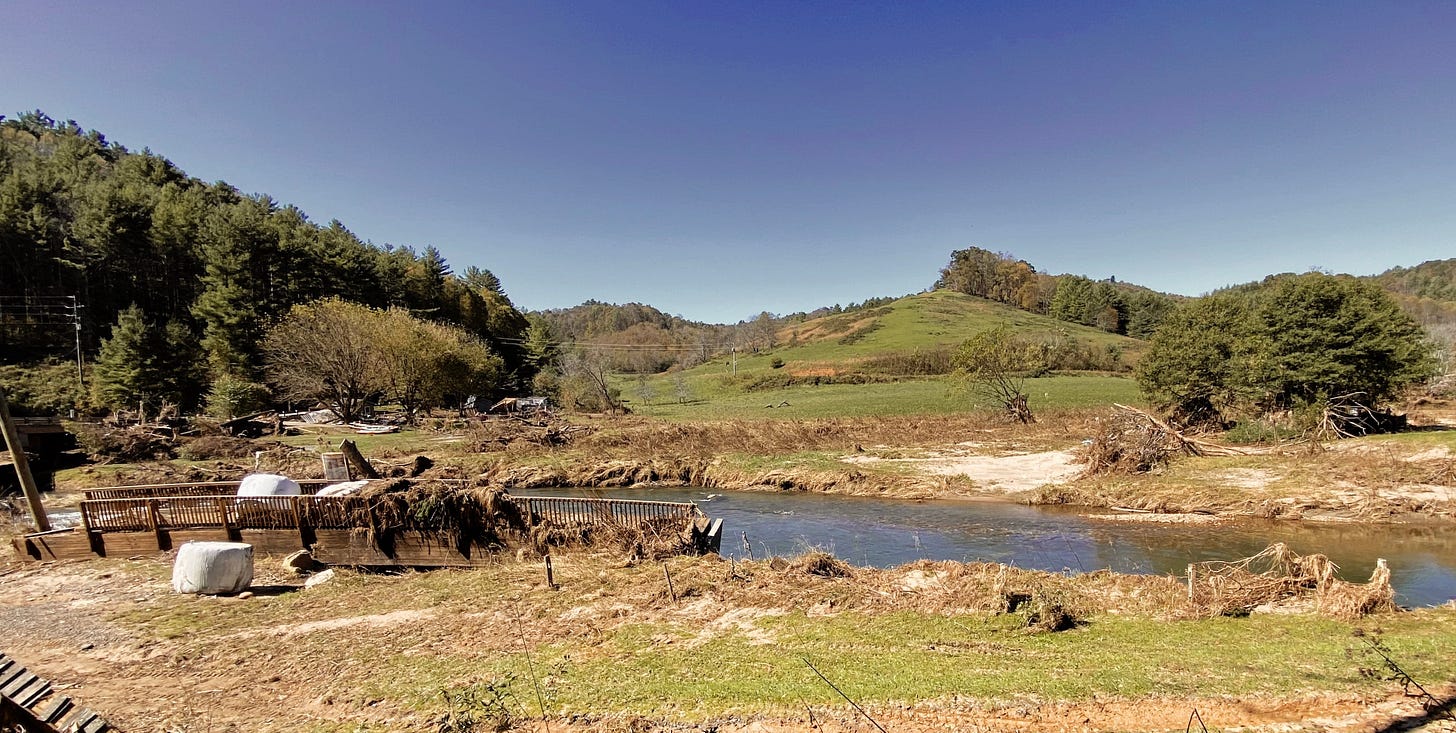
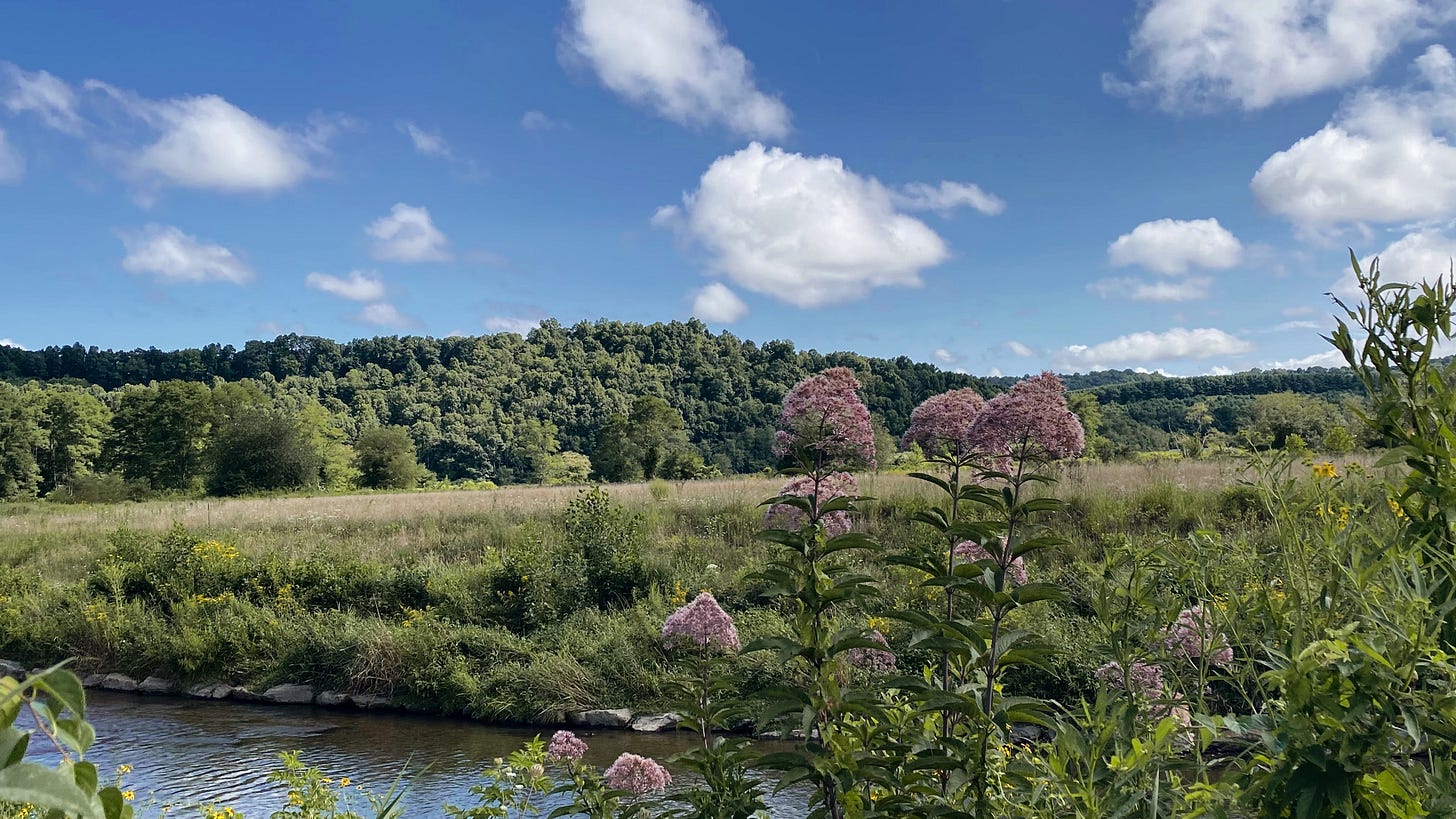
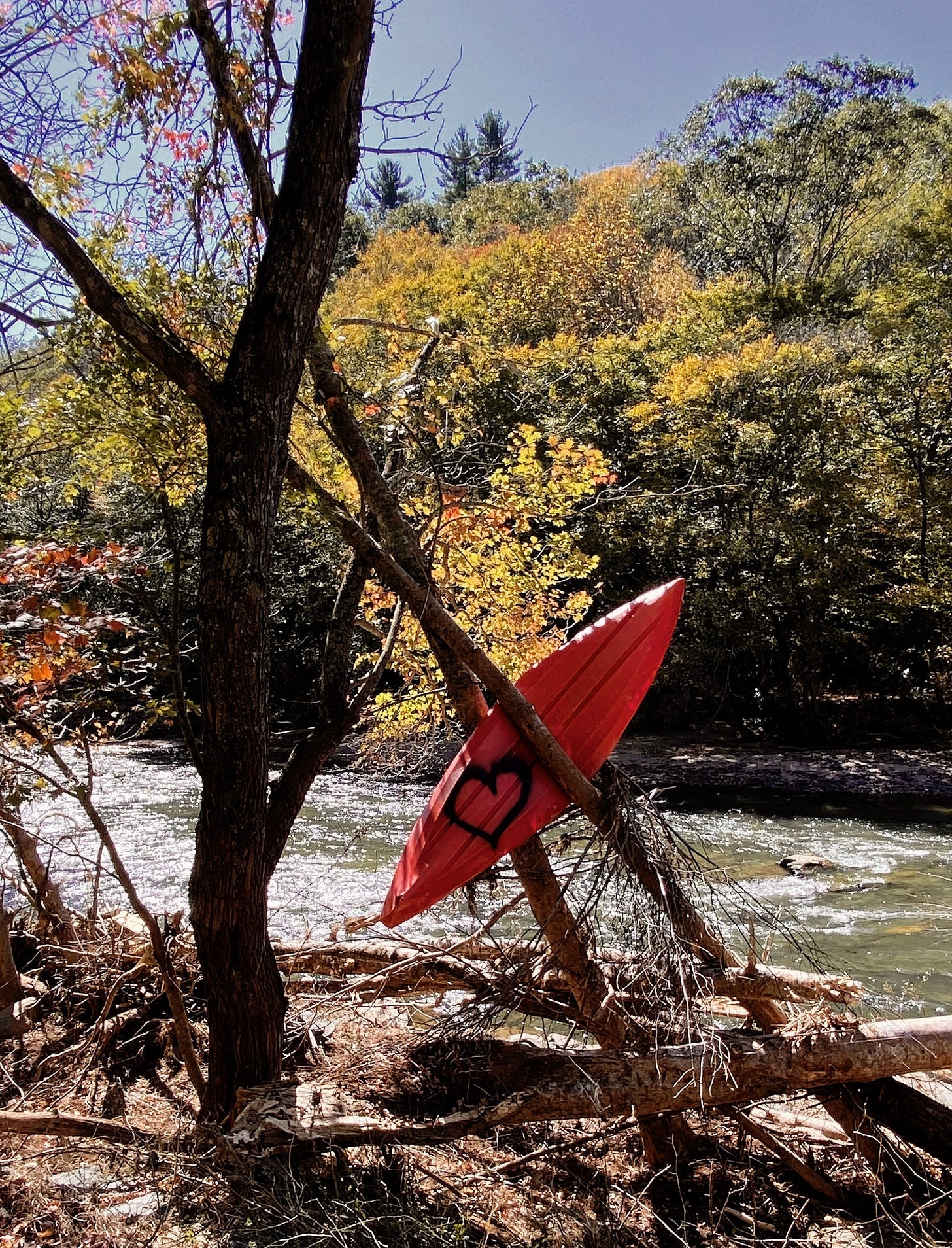
In the way of things, this is what I needed to hear in just this moment--even though you wrote it before this moment happened. I love that about words, about writing and meaning and truth. Thank you for speaking to hope in a way I can root into.
Your words of hope and healing are exactly what I needed this morning. Thank you 💛